

UP-CIFAL PHILIPPINES



























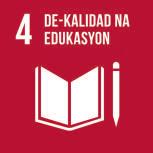


















Nais pasalamatan ng UP-CIFAL Philippines ang opisina ng Sentro ng Wikang Filipino ng Unibersidad ng Pilipinas, lalo na si Dr. Jayson Petras at Gng. Khaye Jayme para sa pagsasalin ng 17 SDGs tungo sa wikang Filipino.























The year 2024 has been a testament of our unwavering commitment to advancing sustainable development and creating meaningful impact in the communities we serve. As I review the achievements of UP-CIFAL Philippines over the past year, I recognize the dedication of our team, our partners, and the individuals who have contributed to our initiatives.
This year, we reached 37,010 beneficiaries, a significant milestone that reaffirms our role as a catalyst for change. Through our flagship programs and new initiatives, we continued to empower leaders, authorities, and advocates who drive progress in their respective fields. Notably, we successfully launched the sixth iteration of the Professional Course on Global Migration (PCGM), reinforcing our commitment to capacity-building in this crucial area.
Understanding that education is key to achieving the Sustainable Development Goals (SDGs), we also introduced innovative initiatives such as the translation of the 17 SDGs into major Filipino languages and Susie for Sustainability, a storybook designed to inculcate the values of sustainability in young minds. We also spearheaded an SDG strategic planning workshop involving UP’s constituent universities, ensuring that the entire university has been, and will be, actively and persistently contributing to the global development agenda as a united force.
The work we do at UP-CIFAL Philippines would not be possible without the strong partnerships we have cultivated over the years. Our collaborations with government agencies, academic institutions, civil society organizations, and the private sector have allowed us to expand our reach and amplify our impact. As we move forward, we remain steadfast in our mission to bridge gaps, foster dialogue, and drive solutions that leave no one behind.
Looking ahead, we recognize that there is still much to be done. The challenges we face— whether in migration, gender equality, climate action, or education—require sustained commitment, innovative thinking, and collective action. With your continued support, I am confident that we will achieve even greater milestones in the coming years.
Together, let us continue working towards a future where dignity, equity, and sustainability define the lives of every Filipino and every global citizen. Onward to another year of impact and progress!

Michelle R. Palumbarit, Ph.D. Director, UP-CIFAL Philippines

The Centre International de Formation des Autorités et Leaders, or International Training Centres for Authorities and Leaders (CIFAL), is an international network, presently comprised of 35 global training centers under the CIFAL Global Network (CGN). The CGN is coordinated by the United Nations Institute for Training and Research (UNITAR) under its Decentralized Cooperation Program (DCP). Institutions in the CIFAL Global Network serve as hubs for capacity-building and knowledge sharing among local and regional authorities, international organizations, the private sector, and civil society.
Each CIFAL center has its own thematic focus areas that fall under the broad categories of urban governance and planning, economic development, social inclusion, and environmental sustainability, all within the rubric of the 2030 Agenda for Sustainable Development.
In the Philippines, CIFAL is hosted by the University of the Philippines. It was established by virtue of a Cooperation Agreement between the University and UNITAR, signed by former UP President Alfredo E. Pascual and UNITAR Executive Director Nikhil Seth. The UP Board of Regents approved the creation of the center on 31 March 2016, and it was formally launched during the 3rd Global Mayoral Forum held in Novotel Hotel, Quezon City on 29 September 2016.
UP-CIFAL Philippines conducts capacity-building and research on the interwoven themes of the 2030 Agenda for Sustainable Development, specifically migration and gender equality.
The CIFAL Global Network is composed of 35 International Training Centres for Authorities and Leaders, all coordinated by UNITAR’s Social Development Programme. The strategic locations of the 35 centres, which can be found across Asia, Oceania, Africa, Europe, the Americas, and the Caribbean ensure a global outreach. Each CIFAL centre provides innovative training and serves as a hub for the exchange of knowledge amongst government officials, academic institutions, the private sector, and civil society.
The central purpose of the CIFAL training programs is to develop and strengthen human capacities to better respond to development challenges and to facilitate City-to-City (C2C) partnerships. The CIFAL alliance provides a platform for dialogue and knowledge transfer on key development-related issues. Through knowledge management methodologies, CIFALs provide networking opportunities that lead to collaboration, facilitation of peer-to-peer learning, and exchange of best practices.



Established in 1963, the United Nations Institute for Training and Research(UNITAR)isatrainingarmof the UN System, serving some 54,000 beneficiaries annually by conducting closeto500capacitydevelopmentand research activities around the world. The mission of UNITAR is to develop the capacities of individuals, organizations, and institutions to enhanceglobaldecision-makingandto support country-level action for shapingabetterfuture.

TheUniversityofthePhilippines(UP)isthe country’s national university. This premier institution of higher learning was established in 1908 through Act No. 1870 of the Philippine Assembly. In 2008, Republic Act No. 9500, “An Act to Strengthen the University of the PhilippinesastheNationalUniversity,”was signed into law, amending Act No. 1870 and establishing UP as the country’s national university. It is now a university system composed of eight constituent universities located in 17 campuses all over the archipelago. Now, the University ishosttoCIFALPhilippines.

TheCIFALGlobalNetworkisUNITAR's networkofaffiliatedcentresdedicated to provide cutting-edge training to strengthen the capacities of government authorities and key change agents at the local and subnational levels to design and implement innovative solutions to global challenges. The CIFAL Global Network is composed of International Training Centres for Authorities and Leaders. These CIFAL centres are located across Asia, Africa, Australia, Europe, the Americas, and the Caribbean.

Atty. Angelo A. Jimenez
President, University of the Philippines

Hon. Joy Belmonte Mayor, Quezon City

Elvin Ivan Y. Uy
Executive Director, Philippine Business for Social Progress

Gustavo González
UN Resident Coordinator in the Philippines

Hon. Richard P. Palpal-latoc Chairperson, Commission on Human Rights

Ricardo P. Isla Chief Executive Officer, Philippines AirAsia, Inc.
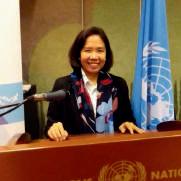
Michelle R. Palumbarit, Ph.D. Director, UP-CIFAL Philippines ex-officio

Hon. Enrique Manalo
Secretary, Department of Foreign Affairs

Fr. Nguyen Hoang Khahn Huy Director, Scalabrini Migration Center

Antonio “Tony” G. Lambino II
President, Ayala Foundation Inc.
















37,010 beneficiaries reached
44% (16,616 females)
56% (20,115 males)
National government: 76%
International organization: 12%
Provincial government: 4%
NGO: 4%
Private sector: 4%
by sector by gender

capacity-building activities 21
1 Learning (Professional courses and trainings with certification)
20 Public awareness (Webinars, Conferences, Workshops, Campaigns)

In celebration of International Women’s Day in March 2024, UP-CIFAL Philippines launched its digital campaign, “Girls Got Goals: Celebrating the Filipina in SDGs”.
This campaign highlighted and celebrated the achievements of Filipino women who are actively engaged in initiatives that contribute to the attainment of the 2030 Agenda for Sustainable Development. This digital campaign is in support of the commitment to the achievement of the United Nations Sustainable Development Goals (SDGs) specifically Goal 5: Achieve gender equality and empower all women and girls.
The campaign featured a series of video interviews from notable women leaders in various fields and sectors, including Senator Risa Hontiveros, Ms. Patricia Non of the Maginhawa Community Pantry, and Ms. Billie Dumaliang of Masungi Georeserve Foundation, among others. Showcasing the stories of these remarkable women, their contributions to sustainable development, and their aspirations for the future, the campaign sought to inspire and empower others to take action and make a difference in their communities.
The campaign ran throughout the month of March through the Centre’s YouTube channel and other social media accounts. Scan to


UP-CIFAL Philippines conducted a forum to initiate discourse about the prevalence of period poverty in the country on 9 May 2024 at the GT Toyota Asian Center Auditorium. Alongside the forum, booths featuring brands that promote sustainable menstrual products, such as COJO, Hiraya Pilipina, Nala Woman, and Sinaya Cup, were also set up.
The forum was held in celebration of Menstrual Hygiene Day on 28 May and Period Poverty Awareness Week from 25 May to 31 May, and it aimed to tackle the issue of gender inequity in the Philippines, particularly through the lens of menstruators experiencing period poverty. It also intended to discuss the integration of menstrual health management in the education curriculum and the mainstreaming of MHM in policies and frameworks.

The forum was divided into two parts: the talks contextualizing period poverty in the Philippines, promoting menstrual health management among young adults, and mainstreaming menstrual health management through policies and frameworks; and a panel discussion and question and answer portion with the speakers. Expert speakers hailed from different sectors and esteemed organizations, such as the United Nations Children’s Fund (UNICEF) Philippines, the Department of Education (DepEd), the University of the Philippines, as well as local government units.







The forum ignited a very important conversation about the manifestations of period poverty in the Philippines and the lack of policies and services to address them. As Villasenor pointed out, the forum signifies that we have come far in recognizing the existence of period poverty in the country, but much still needs to be done. Through promoting menstrual health management and advocating for period visibility, we can create a safer space for menstruators, he added.

Partner organizations include the Lasallian Center for Inclusion, Diversity, and Well-being, Quezon City Gender and Development Council, Rappler Move PH, UN Development Programme Philippines, UP Asian Center, UP Center for Women’s and Gender Studies, UPLB College of Development Communication Department of Science Communication, UPLB Gender Center, UPLB College of Human Ecology Department of Human and Family Development Studies, UPLB Office of Anti-Sexual Harassment, UP Manila Center for Gender and Women Studies, and We Bleed Red Movement Philippines.

Scan to watch the forum here

UP-CIFAL Philippines, in collaboration with key partners including the Department of Interior and Local Government, Greenpeace Philippines, Galing Pook Foundation, UP Resilience Institute, and the Ateneo Institute of Sustainability, successfully hosted the hybrid forum, "LGUs in Action: Local Innovations for Sustainable Communities." Held on August 16, 2024, the event brought together leaders, advocates, and experts from local governments, NGOs, and academia to showcase exemplary sustainable practices and foster collaborative efforts toward climate resilience and sustainable development.
Senator Loren Legarda and Hon. Robert Borje, Vice Chairperson and Executive Director of the Climate Change Commission (CCC), delivered compelling opening and keynote messages, underscoring the critical role of LGUs in achieving climate-resilient communities.



The forum featured presentations from esteemed local government units (LGUs) and their champions of sustainability:
Iloilo City: EnP. Ronald Cartagena shared insights on sustainable urban development and mobility initiatives.
Sagay City, Negros Occidental: Ms. Helen Arguelles Cutillar presented innovative community-driven ecotourism projects.
Alcala, Cagayan: Engr. Benjamin R. Duruin highlighted strategies for climate change adaptation.
Bayawan City, Negros Oriental: Mayor John T. Raymond Jr. discussed sustainability in marine conservation and fisheries development.
Borongan City: Mayor Jose Ivan Dayan Agda emphasized empowering communities toward sustainability.
Quezon City: Mr. Emmanuel Hugh “Nonong” Velasco II showcased groundbreaking urban farming initiatives for food security.
Mandaue City, Cebu: Architect Araceli Barlam detailed advancements in sustainable green infrastructure.
Iloilo Province: Dr. Raul N. Banias presented people-centered approaches to sustainable sanitation.
Baguio City: Mayor Benjamin “Benjie” Magalong highlighted the creation and promotion of healthy open spaces.
The event culminated in an interactive panel featuring distinguished reactors from organizations such as the Galing Pook Foundation, Greenpeace Philippines, USAID, and the UN Development Programme. Discussions explored the replicability of successful LGU initiatives and opportunities for cross-sector collaboration. Scan to watch the forum here


The Summer Academy on Migration and Local Knowledge Systems, organized by the Missionary Sisters of St. Charles Borromeo – Scalabrinians, Denis Hurley Peace Institute, Technische Hochschule Würzburg-Schweinfurt, and Benguet State University, culminated in a thought-provoking symposium titled “Leaving No One Behind: Fortifying Local Knowledge Systems in Philippine Migration Governance.” This event took place on 5 September 2024 and aimed to explore the crucial role of local knowledge systems in fostering effective migration governance and sustainable development in the Philippines.
The symposium featured esteemed speakers who provided invaluable insights into the current state of migration governance and the importance of integrating local knowledge systems.

Sr. Elizabeth Pedernal, Delegate SuperiorAsia Delegation, delivered the welcoming remarks, emphasizing the event’s importance in advocating for holistic and inclusive migration policies.
Panel discussions included topics on sustainable development goals, the transformation and prospects of Philippine migration governance, the rights and welfare of overseas Filipinos, and gender-responsive migration governance, featuring experts like Atty. Sarah Lou Arriola, USec. Patricia Yvonne Caunan, Ms. Irynn Abano, and Prof. Aurora Javate-de Dios.

As part of the Summer Academy series, a roundtable discussion and workshop titled “Highlighting Local Knowledge Systems in Philippine Migration Governance” was also conducted on 8 September 2024. This roundtable discussion aimed to amplify the discourse on the significance of local knowledge systems in promoting inclusive migration governance and achieving the United Nations Sustainable Development Goals (UN SDGs). Participants, including students from the Denis Hurley Peace Institute and Technische Hochschule Würzburg-Schweinfurt, shared their immersion experiences and identified actionable initiatives to enhance local knowledge in migration policy.
The event concluded with a synthesis by Prof. Okoye and Prof. Twikirize, reinforcing the importance of collaborative efforts in enhancing migration governance through local knowledge systems.
The symposium brought together diverse stakeholders, including policymakers, academics, and advocates, to foster dialogue and collaboration in addressing migration issues. The insights gained will contribute to ongoing efforts to create evidence-based, inclusive, and people-centered migration policies.
International perspectives were shared by Prof. Uzoma Okoye and Prof. Janestic Twikirize, highlighting the global dimensions of migration challenges and experiences. Scan to watch the forum here


In celebration of United Nations Day, UP-CIFAL Philippines, in partnership with key organizations, successfully hosted the event Leaders of Tomorrow: Developing Pathways for a Sustainable Future at the Malcolm Theater, University of the Philippines Diliman. The event brought together youth leaders, national and local government representatives, private sector partners, and civil society organizations, focusing on youth-driven contributions to the United Nations 2030 Agenda for Sustainable Development.

The day-long event featured the launch of the Susie for Sustainability book series, a youthfocused resource aimed at raising awareness of young children and inspiring action toward the Sustainable Development Goals (SDGs). The book series was unveiled by representatives from UP-CIFAL Philippines and the University of the Philippines Los Baños College of Development Communication.
Storytelling sessions illustrated how the SDGs impact local communities, aligning with SDG 5 (Gender Equality), SDG 10 (Reduced Inequalities), SDG 11 (Sustainable Cities and Communities), and SDG 17 (Partnerships for the Goals).
In the afternoon, the forum titled “Amplifying Voices: Fostering Youth Involvement for Sustainable Development” provided a platform for experts and youth advocates to discuss the role of young people in advancing sustainable development. Notable speakers included Mr. Alfred Opiz-Dicto, Adolescent Development and Gender Specialist of the United Nations Children’s Fund (UNICEF) Philippines, who highlighted the importance of recognizing the right lens for youth participation, Ms. Natasha Tanjutco, co-founder of TAYO Sustainable Strategies & Creative Consultancy, who valued the vital presence of nature, and Mr. Ranze Calderon, Executive Director of 2030 Youth Force in the Philippines Inc., who shared strategies on youth mobilization for SDG achievement.
UP President Angelo Jimenez and UN Resident Coordinator Gustavo González delivered opening remarks, underscoring the critical role of the youth as catalysts for sustainable change. The event also featured interactive discussions on youth empowerment, the importance of grassroots advocacy, and partnership-building to tackle pressing global challenges.
The Leaders of Tomorrow event concluded with a synthesis led by Shari Niña G. Oliquino, Assistant Vice President for Academic Affairs (Student Affairs), who emphasized the momentum created by the event and the importance of sustained collaboration to achieve the SDGs by 2030.



The University of the Philippines Centre International de Formation des Autorités et Leaders (UP-CIFAL) Philippines proudly held the commencement exercises for the 6th iteration of its flagship learning programme, the Professional Course on Global Migration (PCGM). The event marked another significant milestone in the institution’s efforts to empower leaders with the skills and knowledge necessary to address global migration challenges.
The ceremony took place at the Novotel Manila Araneta City, General Aguinaldo Ave., Cubao, Quezon City, Philippines on 29 November 2024, featuring keynote speeches and special recognitions. This year’s graduates represented a diverse group of professionals from various sectors, including government agencies, international organizations, and diplomatic missions, who demonstrated their commitment to advancing policies and practices in global migration governance.

The PCGM’s curriculum fostered dialogue on migration trends, international agreements, and sustainable development, empowering participants to design and implement solutions tailored to the needs of migrants. It was aligned with the 2030 Agenda for Sustainable Development and the Global Compact for Safe, Orderly and Regular Migration (GCM).
The graduating learners hailed from a wide array of organizations, including the International Organization for Migration (IOM), the Embassy of Ireland in the Philippines, and the Department of Migrant Workers (DMW), showcasing their shared dedication to improving the welfare of migrants and addressing global challenges.
As part of their course requirements, learners held their own webinars on current migration issues and trends.

“Migrant Repatriation: Challenges and Opportunities – A Case Study on Lebanon” explored comprehensive approaches to managing migration in crisis settings and examined the current experience in Lebanon, focusing on policies and practices that prioritize protection, inclusion, and resilience.

Scan to watch the webinar here
Scan to watch the webinar here

“Challenges to and Opportunities for Reintegrating Overseas Filipino Workers” comprehensively identified the challenges and opportunities faced by Overseas Filipino Workers (OFWs) on their return to the Philippines and drew recommendations to ‘smoothen’ their reintegration into Philippine society.

The University of the Philippines Centre International de Formation des Autorités et Leaders (UP-CIFAL) Philippines successfully conducted a two-day Strategic Planning Session and Workshop with the theme “Synergy as Driver for Growth (SDG): UP in Action on the 2030 Agenda on Sustainable Development on December 5-6, 2024, at Novotel Araneta City.”
The event gathered key officials and stakeholders from across the UP System with the following objectives:
To map and monitor the university’s existing plans, programs, and initiatives related to the UN Sustainable Development Goals (SDGs); 1.
To enjoin the constituent universities (CUs) to align their academic, research, and public service functions to the SDGs; and 2.
To forge consensus towards unified support and commitment in implementing the SDGs throughout the UP System. 3.

Executive Vice President Jose Fernando T. Alcantara opened the session, wherein he emphasized the alignment of UP’s flagship programs with the UN 2030 Agenda and stressed the need for a comprehensive data repository to track and showcase SDG-linked initiatives across all constituent units (CUs).
The first day featured presentations from thought leaders and resource persons. Mr. Matija Kovač, Head of the UN Resident Coordinator’s Office in the Philippines discussed the important role of higher education institutions in advancing the SDGs to address global issues and challenges.
Dr. Percival Almoro and Dr. Ma. Theresa Payongayong, Assistant Vice Presidents for Academic Affairs, highlighted UP’s leading role in promoting sustainable development through the creation of research and creative groups and aligning its curriculum and instruction policy to the SDGs. In the afternoon, CU representatives presented their SDG-related plans, programs, and initiatives. The purpose of the afternoon session is to inform participants on how they operationalize and implement the SDGs within their respective CUs.
On the second day, focus group discussion workshops were conducted to evaluate current university programs and policies, address systemic challenges, and develop actionable strategies under three thematic pillars of the UP Strategic Plan 20232029:

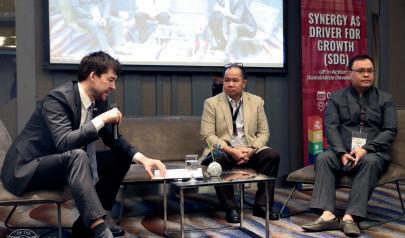
Teaching, Innovation, and Research for a Sustainable Society – Participants proposed enhancing faculty and staff awareness and engagement in sustainability efforts, and improving interdisciplinary collaboration.
Public Service for the Common Good –The session emphasized the need to align internal resources to SDG-related initiatives and establish clear metrics for evaluating SDG impacts.
Consultative and Accountable Governance – Attendees highlighted the important role of UP-CIFAL in creating a university-wide SDG roadmap, establishing unified data systems, and streamlined governance structures.
UP-CIFAL Philippines Director Dr. Michelle R. Palumbarit expressed optimism about the workshop’s outcomes. In her concluding remarks, she stated that the event has underscored UP’s commitment to embedding sustainability across all facets of its operations, reinforcing its role as a national leader in SDG advocacy.

Language plays a crucial role in communication, culture, and understanding. In 2015, the United Nations (UN) introduced the 17 Sustainable Development Goals (SDGs) as a blueprint for creating a more equitable, sustainable, and peaceful world by 2030. The SDGs cover a wide range of issues, from poverty and hunger to gender equality and climate action, aiming to leave no one behind. However, for these ambitious goals to truly resonate with people at the grassroots level, they must be translated into local languages.
As we work toward achieving the SDGs by 2030, translation should be seen not just as a technical task, but as a fundamental act of empowerment. It gives people the tools to participate in shaping the future of their communities, to hold decision-makers accountable, and to contribute to a global movement for sustainability that recognizes and values cultural and linguistic diversity. The translation of the SDGs into local languages can significantly enhance their implementation, engagement, and impact.
UP-CIFAL Philippines, together with the Sentro ng Wikang Filipino - UP Diliman, translated the 17 Sustainable Development Goals (SDGs) into major languages in the country: Filipino, Kapampangan, Sebwano, Bikol, Hiligaynon, Ilokano, and Waray, and into the ancient traditional script Baybayin.
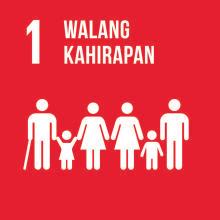




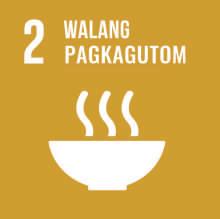



















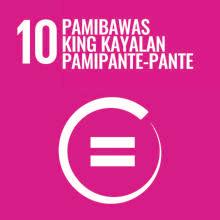













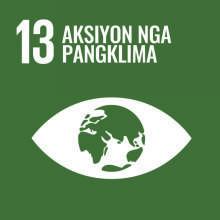




















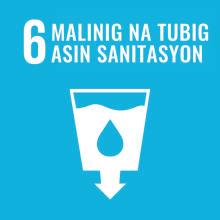











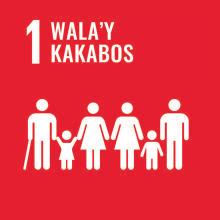



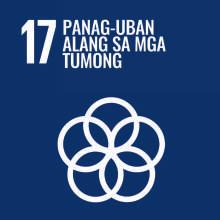
17 TUMONG ALANG SA MALUNGTARONG PAG-USWAG













17 TUMONG ALANG SA MALUNGTARONG PAG-USWAG

































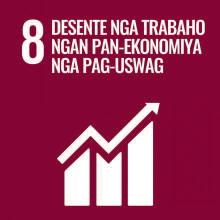














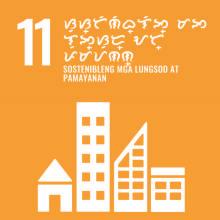
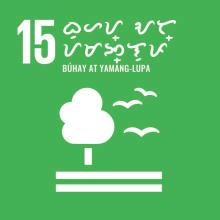





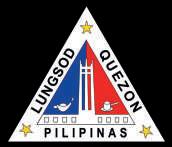

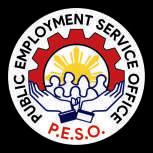























































Toni Serrano-Soriano
tssoriano@up.edu.ph
Elora Mae Atos

egatos@up.edu.ph

Mark Vincent Mercene
mrmercene@up.edu.ph

Stephanie Nicole Cruz smcruz2@up.edu.ph

Andreana Gabrielle David
asdavid3@up.edu.ph

Franco Angelo Nicomedes
fbnicomedes@up.edu.ph





Smart Blademere F. Aguilar
sfaguilar@up.edu.ph

Miguel Angelo Fudolig Bactol
mfbactol@up.edu.ph

Rommel S. Gonzaga

rsgonzaga1@up.edu.ph



Vincenzo Sebastian C. Reyes
vcreyes@up.edu.ph

Andrei Josef Policarpio

aapolicarpio1@up.edu.ph

Patricia Gael A. Sarical

pasarical@up.edu.ph

Bianca Madeline T. Segui


btsegui@up.edu.ph

Normita Quibuyen


